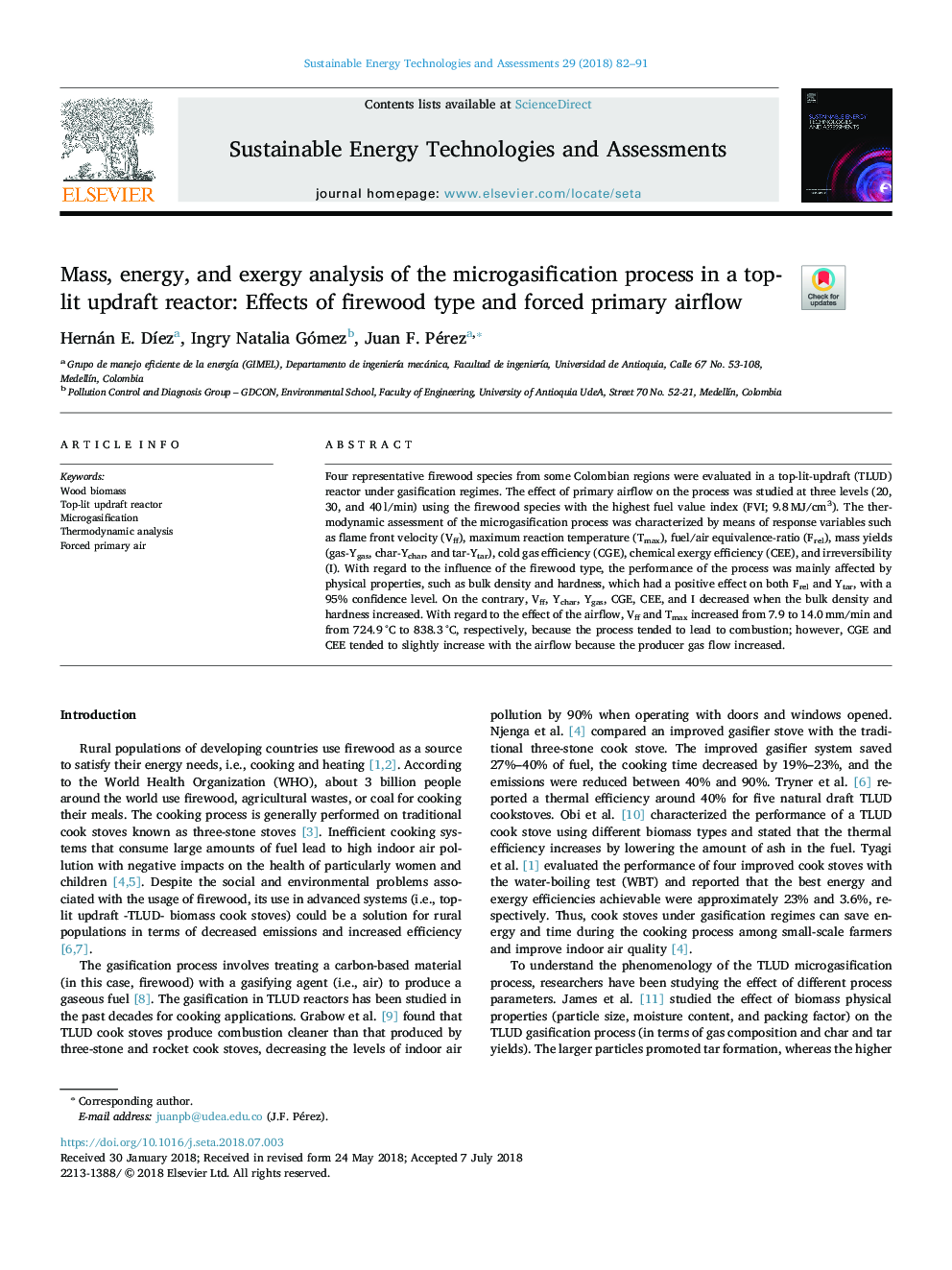| Article ID | Journal | Published Year | Pages | File Type |
|---|---|---|---|---|
| 8122546 | Sustainable Energy Technologies and Assessments | 2018 | 10 Pages |
Abstract
Four representative firewood species from some Colombian regions were evaluated in a top-lit-updraft (TLUD) reactor under gasification regimes. The effect of primary airflow on the process was studied at three levels (20, 30, and 40â¯l/min) using the firewood species with the highest fuel value index (FVI; 9.8â¯MJ/cm3). The thermodynamic assessment of the microgasification process was characterized by means of response variables such as flame front velocity (Vff), maximum reaction temperature (Tmax), fuel/air equivalence-ratio (Frel), mass yields (gas-Ygas, char-Ychar, and tar-Ytar), cold gas efficiency (CGE), chemical exergy efficiency (CEE), and irreversibility (I). With regard to the influence of the firewood type, the performance of the process was mainly affected by physical properties, such as bulk density and hardness, which had a positive effect on both Frel and Ytar, with a 95% confidence level. On the contrary, Vff, Ychar, Ygas, CGE, CEE, and I decreased when the bulk density and hardness increased. With regard to the effect of the airflow, Vff and Tmax increased from 7.9 to 14.0â¯mm/min and from 724.9â¯Â°C to 838.3â¯Â°C, respectively, because the process tended to lead to combustion; however, CGE and CEE tended to slightly increase with the airflow because the producer gas flow increased.
Keywords
Related Topics
Physical Sciences and Engineering
Energy
Energy Engineering and Power Technology
Authors
Hernán E. DÃez, Ingry Natalia Gómez, Juan F. Pérez,
